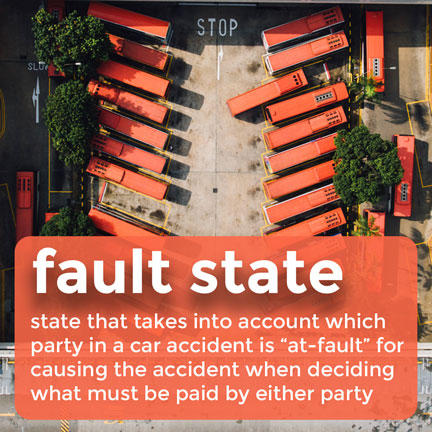Do I Need a Witness for My Evansville Slip and Fall Case?

If you’ve ever tripped or fallen in public, you know how humiliating it can be to look around and see other people watching you. However, in serious slip and fall accidents that result in injury, these strangers may be powerful allies for your case.
How Witnesses Help Slip and Fall Cases

Not every slip and fall case will have reliable, unbiased witnesses to the event. However, a third party’s account of the fall can go a long way in court or in your claim process to reveal who was at fault.
 Indiana is a fault state, which means people who make claims must prove the property owner is at least 51 percent responsible for causing their injury. Because of this, property owners, their attorneys, and their insurance agents will make arguments that put you at fault for your fall; any percentage you are determined to be at fault will decrease your recovery accordingly.
Indiana is a fault state, which means people who make claims must prove the property owner is at least 51 percent responsible for causing their injury. Because of this, property owners, their attorneys, and their insurance agents will make arguments that put you at fault for your fall; any percentage you are determined to be at fault will decrease your recovery accordingly.
While it may be clear that you were not completely at fault in your slip and fall case, a witness testimony can help reduce the percent you are found at fault and therefore increase the compensation you receive from the property owner.
Depositions in Slip and Fall Cases

 If a witness comes forward to help your case, he or she may be deposed. During a deposition, attorneys from both sides will have the opportunity to ask questions under oath of any party being deposed: the victim, property owner, or any other relevant sources of information, like witnesses, maintenance workers, or doctors.
If a witness comes forward to help your case, he or she may be deposed. During a deposition, attorneys from both sides will have the opportunity to ask questions under oath of any party being deposed: the victim, property owner, or any other relevant sources of information, like witnesses, maintenance workers, or doctors.
A witness’s testimony during his or her deposition can clarify and corroborate the claimant’s account of what happened, strengthening the victim’s chance of winning damages from the claim or lawsuit.
However, a witness testimony is just one part of a strong argument against the property owner you are seeking compensation from. A strong case will have many of the following pieces of information:
- Medical records and treatment plans related directly to the injury
- Surveillance footage that records the fall
- The exact pair of shoes the claimant during the injury, if applicable
- Witness testimony
- Documents about recent maintenance or known safety hazards throughout the property
Depositions can be grueling, as both sides use this opportunity to gather evidence that supports their case and hurts the other’s. Commonly asked questions include:
- Were you distracted before you fell?
- What condition do you guess caused your injury?
- What part of your body took the force of the fall?
- Do you recall seeing any signs or posted warnings?
- What did you do before, during, and after the fall?
Witnesses to your fall may not be asked the same questions, but their testimony can be just as important as yours. They may have seen, heard, or known something about the dangerous condition in which you were injured and can provide evidence that either solidifies or undermines your case.
Though some pieces of this process are written out and cannot be changed, your personal testimony in the heat of the moment may contradict something you said earlier, which can hurt your case. In high-stakes moments like this, it’s helpful to have an experienced Evansville personal injury attorney to help prepare and coach you through the process.
Evansville Personal Injury Attorneys on Your Side
If you’ve been injured because of a property owner’s negligence, you may not realize what’s in store for your personal injury case. Interrogatories, depositions, and even trial may await because the owner doesn’t want to have to pay for your medical bills. The complicated process and intimidating communication from insurance companies may make it seem like you don’t have any options, but you do. Contact the Evansville personal injury lawyers at Hensley Legal Group today for a free consultation of your case. We won’t be paid until you are and we care about getting the compensation you deserve.